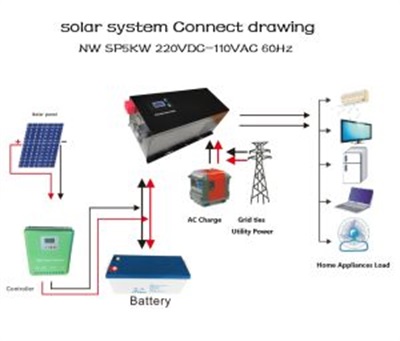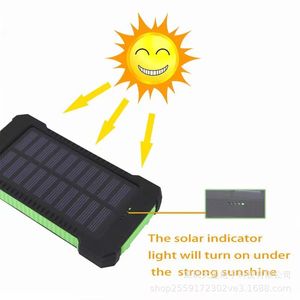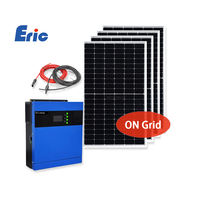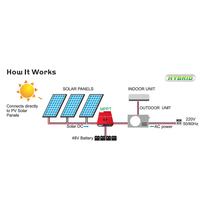Is a Solar Micro Inverter Better Exploring the Advantages and Disadvantages
Is a Solar Micro Inverter Better? Exploring the Advantages and Disadvantages
Introduction to Solar Micro Inverters
In recent years, the quest for efficient and sustainable energy sources has led many homeowners to explore solar energy solutions. One of the key components in a solar energy system is the inverter, and increasingly, more people are asking if solar micro inverters are the better choice for their solar setups. But what exactly is a micro inverter, and how does it compare to traditional string inverters? In this article, we will delve into the advantages and disadvantages of using solar micro inverters.
What is a Solar Micro Inverter?
A solar micro inverter is a small device that converts the direct current (DC) generated by individual solar panels into alternating current (AC) that can be used in your home or fed back to the grid. Unlike traditional string inverters, which connect several solar panels together, micro inverters are installed on each panel. This unique configuration allows for individual optimization of each panel's performance, potentially leading to higher overall energy production.
Advantages of Using Solar Micro Inverters
The primary advantage of micro inverters is their ability to maximize energy harvest. Since each panel operates independently, if one panel is shaded or underperforming, it doesn’t affect the output of the others. Additionally, micro inverters can offer enhanced monitoring capabilities, allowing homeowners to track the performance of each solar panel in real-time. This level of detail can help in identifying issues quickly and maintaining optimal performance.
Another critical benefit is design flexibility. Micro inverters allow for a more modular system; homeowners can add more panels without worrying about compatibility issues with a fixed string inverter. This means you can expand your solar energy system as your needs grow without significant modifications.
Disadvantages of Solar Micro Inverters
Moreover, installation can be more complex due to the necessity of placing a micro inverter on each panel. This can result in higher labor costs if you're hiring professionals and may elongate the installation timeline.
Long-Term Investment Considerations

When weighing the decision between micro inverters and string inverters, it’s vital to consider long-term value. While micro inverters may come with a higher initial price tag, their efficiency in maximizing energy output can lead to greater savings over time. Additionally, many micro inverters come with extended warranties, sometimes lasting up to 25 years, providing peace of mind and potential long-term cost savings.
Final Thoughts
Ultimately, choosing a solar micro inverter over traditional options depends on your specific energy needs, budget, and preferences. If your home is likely to face shading issues or if you plan to expand your solar setup in the future, micro inverters may well be worth the investment. As the demand for renewable energy sources continues to grow, understanding the benefits and limitations of each option is essential in making an informed decision for a sustainable energy future.


